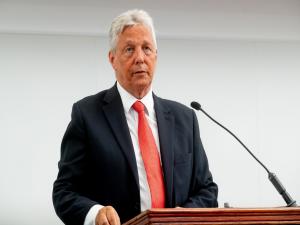
By David Young
A former Democratic Unionist leader has suggested holding fixed generational polls on Irish unification as a way to stabilise politics in Northern Ireland.
Ex-Stormont first minister Peter Robinson said the approach would help make the constitutional question less disruptive to local politics and the prospect of a referendum less threatening.
Delivering a lecture at Queen's University in Belfast, veteran unionist Mr Robinson stressed he would be very confident that citizens would choose to stay within the United Kingdom.
But, reflecting on the discordant aftermath of the Brexit vote, he said the prospect of a simple yes/no poll to deal with a "colossal constitutional change", and which could be carried with a majority of just one vote, was a "recipe for chaos" on the island.
As such, he said there was a need for processes and timescales to be agreed in advance, rather than having to "tackle the issue on the fly" if unification was ever backed.
"In this I am not, of course, talking about the nature and shape of the new state that would emerge if there ever was a vote to exit the UK," he said.
"I am alluding to the need to agree a process for negotiations, timescales and not only the means of reaching agreement on all the particulars but also who would be involved in negotiating such an agreement.
"With those details settled, my own view, for what it's worth, is that fixed generational border polls would be less divisive and disruptive of our local political process."
Mr Robinson acknowledged he had "pulled the pin out of the grenade" with his remarks.
The main focus of Mr Robinson's lecture at Queen's was his reflections on how to restore a stable powersharing administration.
.@DUPleader welcomes Peter Robinson lecture @QUBelfast on restoring devolution “a lot of takeaways for all leaders of the political parties - tonight shows he has so much to offer...” pic.twitter.com/eT5xaJcw0n
— Q Radio News (@qnewsdesk) June 7, 2018
The former first minister, who was recently appointed an honorary professor of peace studies at the institution, warned that community division in the region was "accelerating" and suggested violence could reignite if the political stagnation continued.
"We are at risk of awaking the slumbering hostilities that we had all hoped would never again be aroused," he said.
The former MP suggested that widening the range of issues in the negotiations between the rowing parties could actually help, rather than hinder efforts to secure a deal to resurrect devolution.
"As I see it, simply applying a sticking plaster, or attempting to patch-up the existing process, will not provide a durable result," he said.
He said by broadening the agenda, to take in other unsettled issues, could provide more scope for trade-offs and identify areas where common ground could be found.
"I am talking about those matters that impact upon the smooth operation, permanence, continuity and stability of the institutions," he said.
"I say this because I feel sure a new Assembly tripping over the debris of unresolved, critical problems will collapse and because I believe another collapse would be fatal for devolution and harmful to the future of Northern Ireland."
He called for reforms to Assembly structures so one party alone could not wield the power to collapse the institutions by walking out.
"Whatever future problems may arise, the parties, in agreeing a new deal, should, at the very minimum, sign a solemn declaration to work on any problem that surfaces while still operating the agreed institutions," he said.
He said there was a need to move from the politics of "process" to create a sense of permanence around the institutions.
"Being processed brings with it that unsettled feeling that produces uncertainty and, at times, fear," he said.
"That's why I counsel against a nip and tuck solution and favour major reconstructive surgery. The outcome of the next set of negotiations must have the feel of the parties having reached a settlement rather than the continuation of a process."
He said current structures that enable parties to veto decisions needed reform, insisting it was possible to design other community protective devices.
Addressing an audience that included current DUP leader Arlene Foster, Mr Robinson said the most recent set of failed negotiations to resurrect Stormont ended in a "train crash".
"Where the blame game reached fever-pitch, angry words were exchanged, documents leaked, confidences broken, and trust shattered," he added.
In an apparent challenge to the current generation of leaders, Mr Robinson said going forward one of the hardest tasks would be to sell any deal to their respective parties.
"Let's be clear, not all of your colleagues, will want to make the necessary concessions," he said.
"That's where leadership comes in."
He added: "It will be a career defining moment. Make no mistake about it, your leadership will be on the line. If they reject your recommendation they are rejecting your leadership. So, fight tooth and nail for it."
He said an agreement had to involve compromise and insisted Northern Ireland's two communities could work together to achieve great things.
Mr Robinson said efforts should be focused on achieving reconciliation.
"We must acknowledge that pain and sorrow, and we must also take responsibility for working together to create real change," he said.
"That, is the stamp of leadership. Even though many in the ranks will have reservations about aspects of what an agreement may contain; even when it means challenging ourselves and the way things have been done in the past; even though we may face criticism - even abuse.
"For, if, instead of head-butting each other, we join to put our shoulders to the wheel, committing ourselves to serve the whole community and establish shared goals we can build a better and brighter future for our children and grandchildren, without regard to identity, culture, religion or party politics."


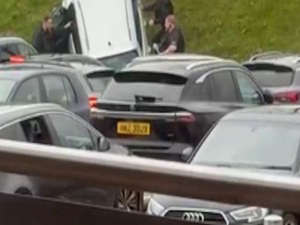 Woman charged over theft of campaigner’s car ‘must stay out of Belfast’
Woman charged over theft of campaigner’s car ‘must stay out of Belfast’
 Bluetongue restrictions in Northern Ireland will be relaxed from Friday
Bluetongue restrictions in Northern Ireland will be relaxed from Friday
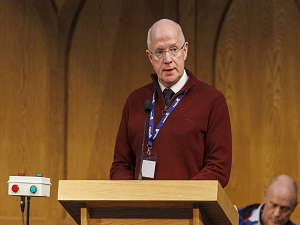 Conviction led to safeguarding review at Presbyterian Church
Conviction led to safeguarding review at Presbyterian Church
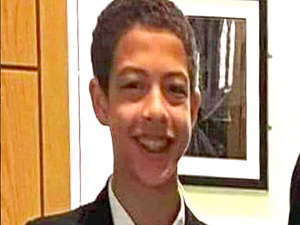 Coroner vows to keep Noah Donohoe inquest ‘on track’ for January start date
Coroner vows to keep Noah Donohoe inquest ‘on track’ for January start date
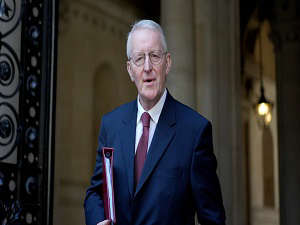 Appeal to European Court being considered after ruling over Troubles disclosures
Appeal to European Court being considered after ruling over Troubles disclosures